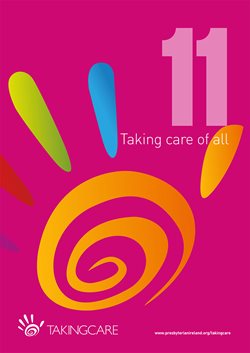 As a Church we have a duty to protect all who are members or participate in the life and work of our church community. Harm, abuse or exploitation can happen anywhere, even in churches. Safeguarding is everyone’s business and should be an integral part of congregational life and monitored by Kirk Sessions. It should not be seen as another burdensome policy, but as the living out of the Gospel imperative to love and care for one another.
As a Church we have a duty to protect all who are members or participate in the life and work of our church community. Harm, abuse or exploitation can happen anywhere, even in churches. Safeguarding is everyone’s business and should be an integral part of congregational life and monitored by Kirk Sessions. It should not be seen as another burdensome policy, but as the living out of the Gospel imperative to love and care for one another.
The Pastoral Care of members, church based activities and events will be the main context of many of our concerns. Doing nothing is not an option; better to share a concern than run the risk of a serious event going unreported.
This response will involve us as a Church discussing our concerns and, when necessary, reporting them to the appropriate person and cooperating with Statutory Bodies, whilst ensuring that the appropriate support is afforded to all parties concerned.
Our churches have a significant presence in our communities. Individuals, families and groups participate in activities every week. They have a right to feel safe and secure and when systems fail we have a duty to act immediately.
“As a denomination, it is vital that we ensure that all of our members and visitors are protected from abuse, exploitation or neglect and the risk of harm. Safeguarding adults is complex and challenging and it is vital that we work in partnership with other agencies to protect all.”
The term “safeguarding” is used in its widest sense; that is, to encompass both activity which prevents harm from occurring in the first place and activity which protects adults at risk where harm has occurred or is likely to occur without intervention.
These guidelines are for anyone within the Presbyterian Church in Ireland who is working with adults at risk, whether they are in a paid position or are a volunteer.